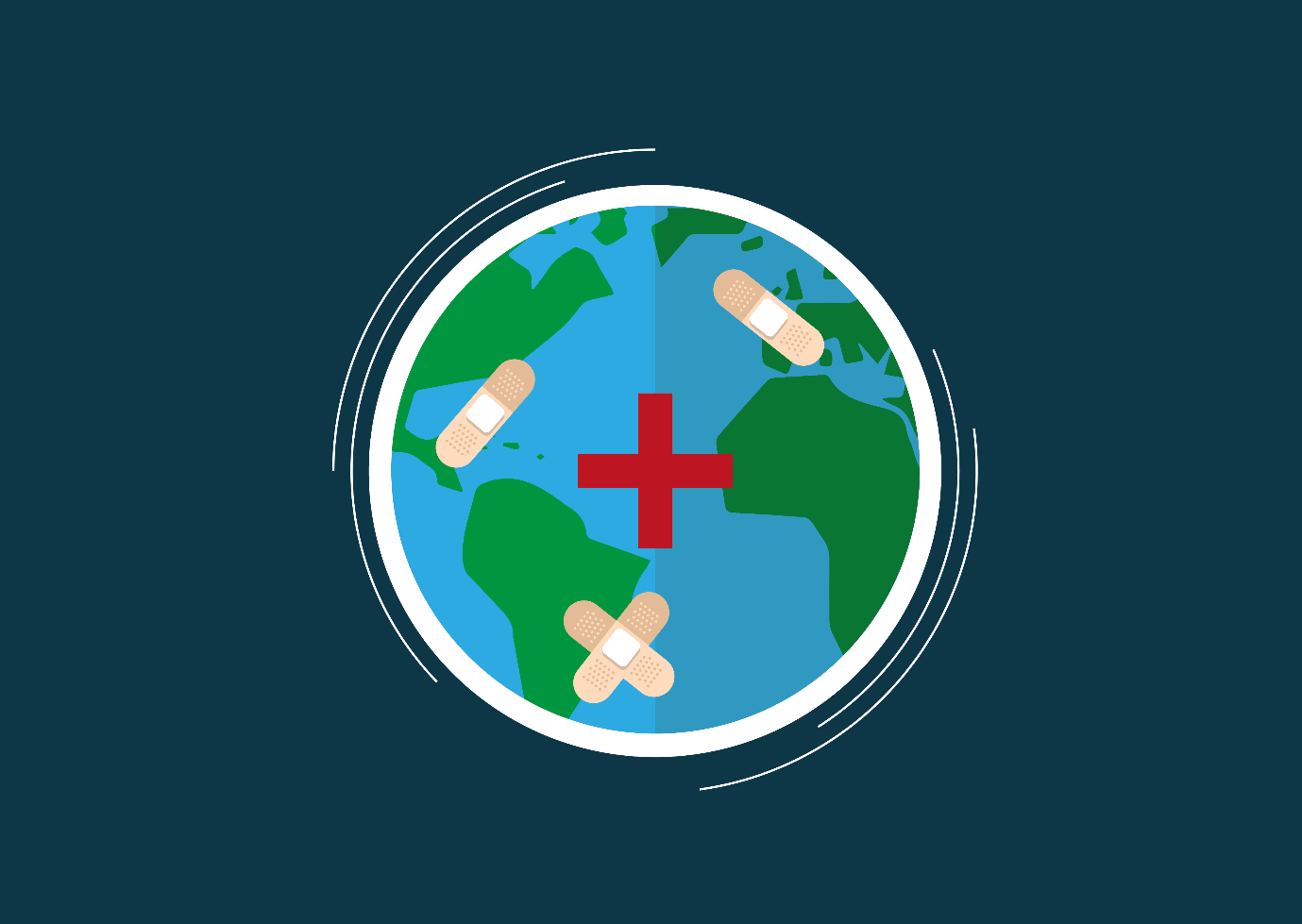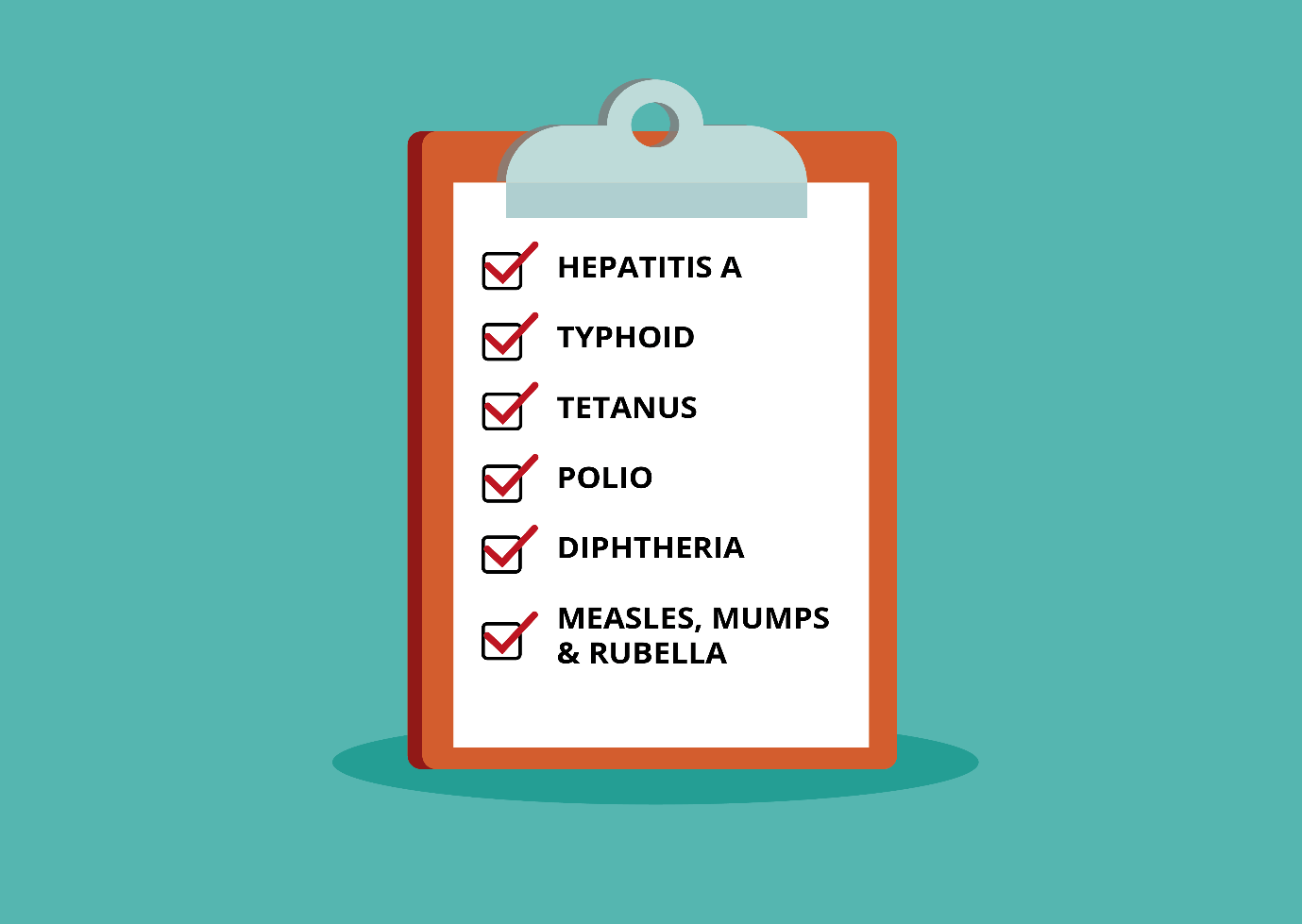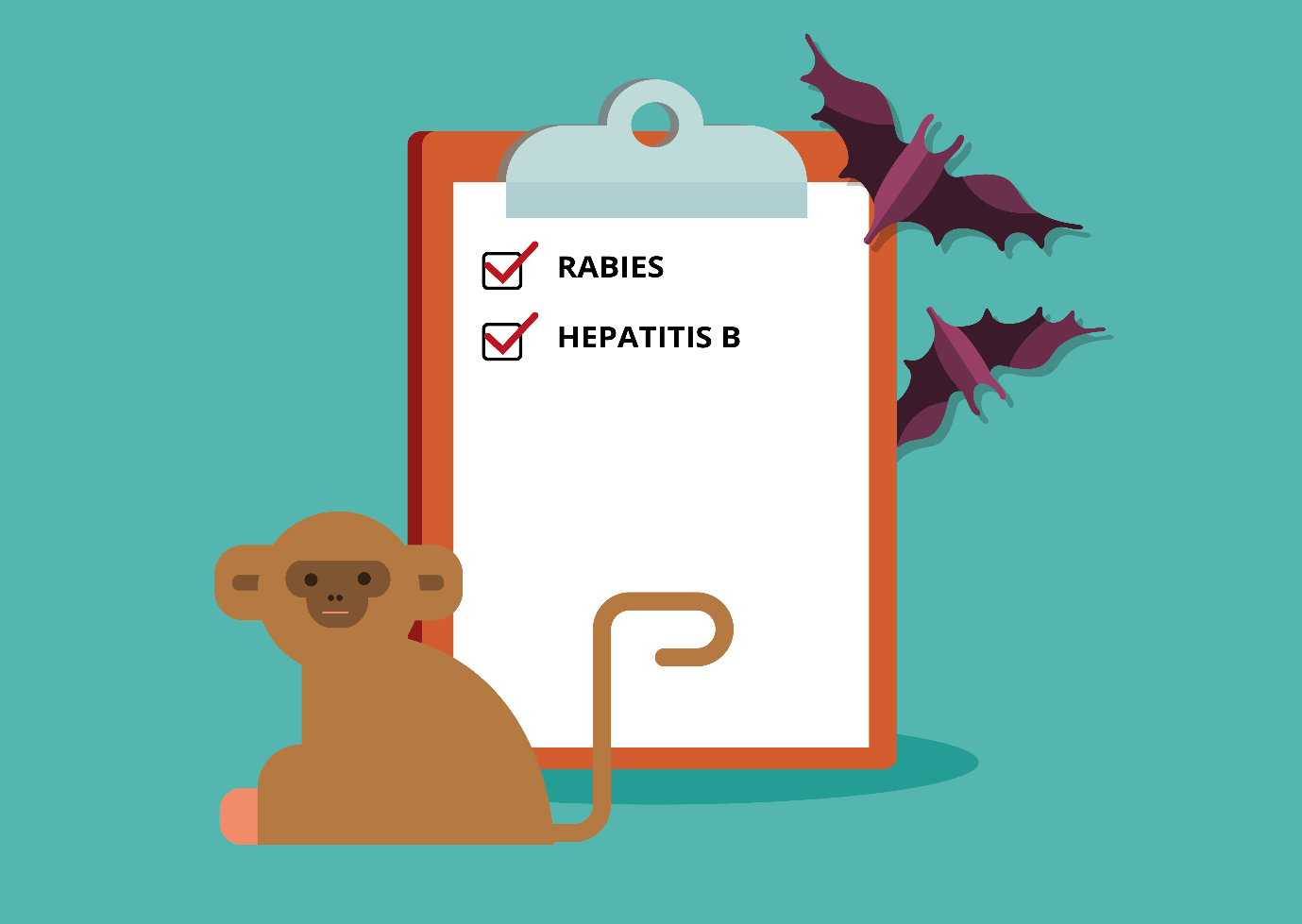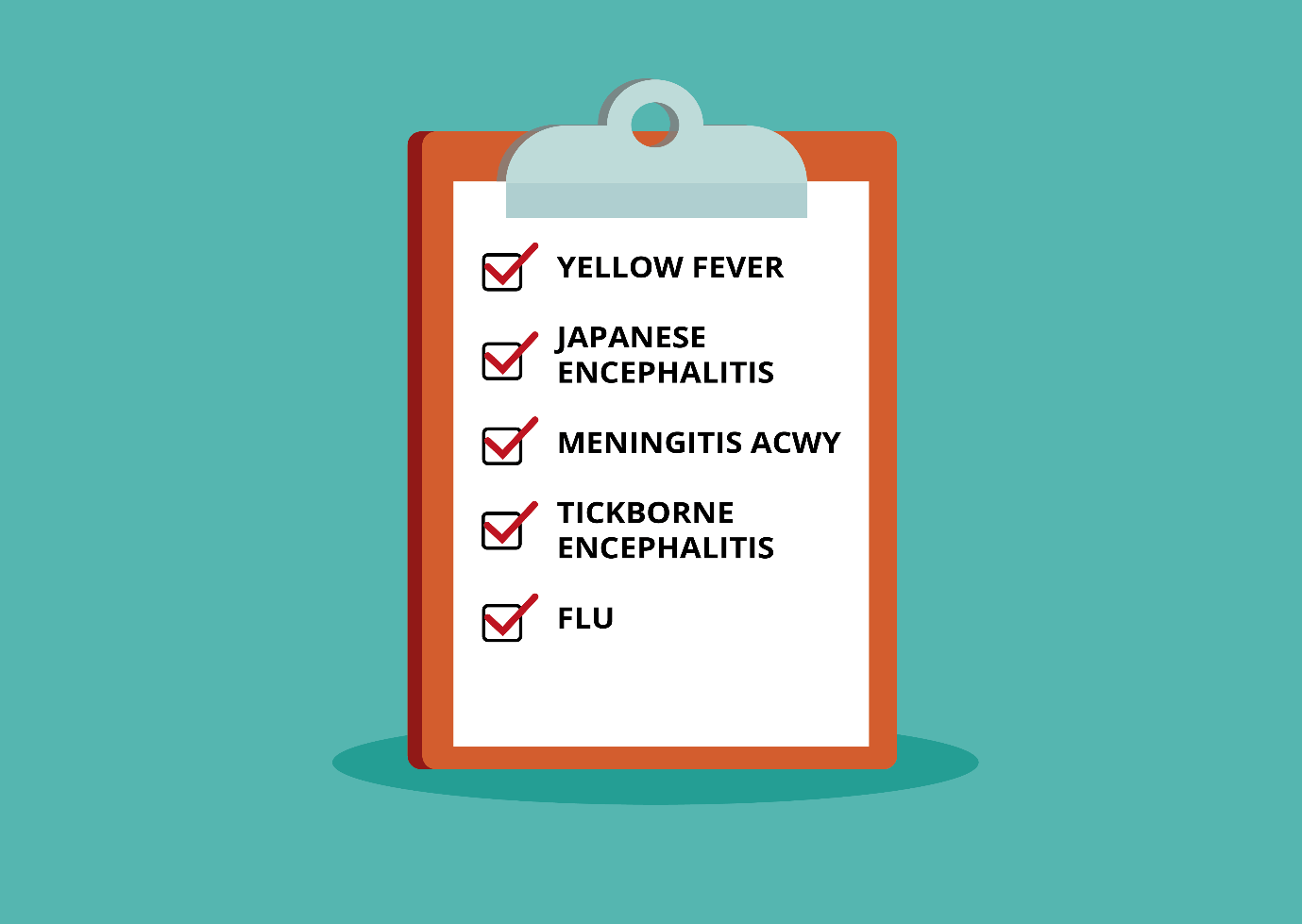
Call 0330 880 3600 Calls may be monitored or recorded. Opening Times.
- TRAVEL INSURANCE
- COVID-19 ENHANCED COVER
- More Options
- Help & Advice
- Existing Customers

Call 0330 880 3600 Calls may be monitored or recorded. Opening Times.

June 2017

Travelling is an amazing adventure that I would recommend to anyone! However, there are many diseases that travellers may be at risk of catching, especially in tropical climates, so it is worth being prepared. Lots of these diseases now have vaccinations available to prevent them. If these are indicated for the countries and type of trip you are going on, I would highly recommend having them, and I will talk about these.
However, there are also many diseases for which we don’t have vaccines yet, so it is vital take steps to prevent getting diseases, such as through avoiding insect bites (repellents and nets), ensuring your food and water is safe, frequent handwashing, and being aware of hazards in the environment around you. Carrying a medical kit is also worthwhile.
Common recommendations
The most common vaccines recommended for many parts of the world include Hepatitis A and Typhoid which are diseases you catch through contaminated food and water. The other common recommendation is to be up to date with Tetanus vaccination every 10 years for travel, this one comes as a combination vaccine which also includes Polio and Diphtheria protection. You should also ensure that you had 2 doses of the Measles, Mumps & Rubella vaccine in childhood. These ones you can often get for free from your GP surgery, so it is worth contacting them for an appointment well in advance of your trip.

Going away for a long period of time? Likely to be far away from medical help?
For travellers going for longer periods or who may be far away from medical help, then Rabies and Hepatitis B Vaccinations may be indicated. Rabies is a virus transmitted by bites or scratches from warm blooded animals like dogs, monkeys, bats and cats. This disease is very common in places like India, Africa, South East Asia, and South America. It is important to stay away from animals but if you are bitten, scratched or even just licked on an open wound then it is vital to wash the wound well and get to a clinic for vaccinations as soon as possible.

The benefit of having 3 pre-travel Rabies vaccines (given over 3-4 weeks) is that it gives your immune system a head start in protecting you against this deadly virus, and means you have a bit more time to get to medical help. The full course of Rabies is 5 doses so you would normally just need the final two vaccines if you are bitten/scratched. Travellers are often put off by the cost of Rabies vaccines, however I think of these as being like insurance… you hope never need it, but if you do have an incident it makes life a lot easier! If you don’t have the 3 vaccines prior to travel and you get a bite/scratch from an animal then you would need to wash the wound, ideally get to a clinic within 24 hours, and start the full course of 5 vaccinations given over a month. This can be logistically difficult to do if you are either far from medical help or travelling around to different locations.
In addition to this you should initially have an immunoglobulin injection which provides some temporary protection from Rabies while your body is building up its own immunity from the vaccinations. However, Rabies Immunoglobulin is not always available and can be extremely expensive.
Hepatitis B recommendations
Hepatitis B is a virus transmitted via infected blood and body fluid. It is advisable to avoid unprotected sex, tattoos and piercings while abroad as many other diseases are spread this way (e.g. HIV, Hepatitis C and Sexually Transmitted Infections). Hepatitis B vaccinations are recommended if you are going ‘off the beaten track’ as there may not be reliable medical clinics available should you need them. Re-using medical equipment without proper sterilisation can be common practice in poorer areas. The vaccine is also recommended for anyone planning to have medical or dental treatments abroad and those doing activities such as volunteer work or contact sports. This is a course of vaccines that ideally needs at least 1-2 months to provide protection.
Africa, South America, India and South-East Asia
Other vaccinations which are more specific to certain parts of the world include Yellow Fever which is in parts of Africa and South America, and Japanese Encephalitis which is found in rural parts of India and South-East Asia, both are transmitted by mosquitoes. Even if you have these vaccinations it is still vital to frequently re-apply repellents to exposed skin during the day and sleep under a treated mosquito net at night to prevent other diseases such as Zika Virus, Dengue fever and Malaria for which we don’t have a vaccine.
Meningitis ACWY vaccine is recommended for parts of Africa, particularly for people who will be spending time in crowded areas, schools or in local communities as this disease is acquired through coughing and sneezing, a bit like flu. This vaccine is mandatory for those going on pilgrimage to Saudi Arabia. The Flu vaccine is also a good idea to have in winter as travelling puts you into crowded situations where this disease spreads more easily.
Tickborne Encephalitis is a disease that many people in the UK are not aware of. This vaccine is recommended to travellers camping or walking in forested areas in Central and Eastern Europe, and parts of Russia and Asia. It is vital to avoid tick bites as they can also carry Lyme disease for which we don’t have a vaccine.

Further information
To find out what vaccines may be recommended for the specific places you are travelling to, or for further information on the diseases mentioned here I would recommend having a look at either www.fitfortravel.nhs.uk, then always get advice from your practice nurse or a travel clinic well in advance of your trip. Plus, always check out your destination on https://www.gov.uk/foreign-travel-advice for advice on safety, security and local customs.
While you will try your best to ensure you don’t end up visiting the hospital while abroad, it’s always wise too consider travel insurance. That way, you don’t have to worry about all the extra costs that a medical emergency might incur.
Now that’s all covered, make sure you have the time of your life!
Emley Pine, Specialist Travel Health Nurse Trainer, Nomad Travel